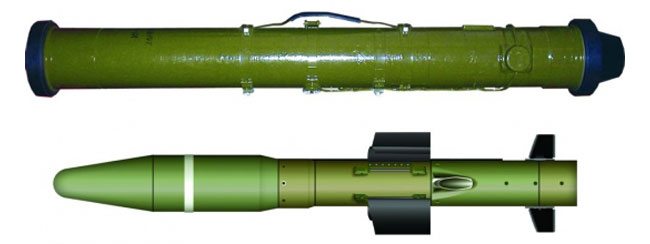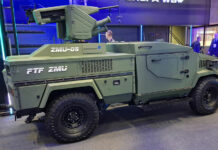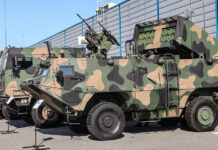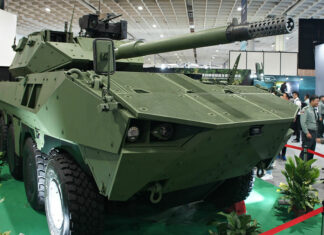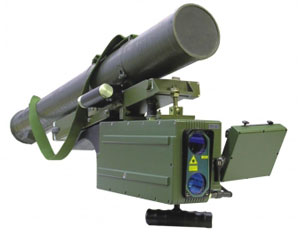

“We are ready to consider the acquisition of Ukrainian-produced advanced 105mm anti-tank guided missiles which were developed by the Promin State Design Bureau. We are also interested in the joint production of high-precision weapons.” Interfax quoted Skrzypczak saying.
Since 2003 Poland has fielded over 2,600 Israeli Spike LR missiles, which are likely to remain and even increase the number in service, particularly with the planned fielding of missile-equipped turrets with the new Rosomak wheeled infantry carriers in is planning to buy over the next four years. The Polish interest in these Ukraine missiles could be in in the laser-guided man-portable and tank-gun launched missiles the Ukraine offers. Laser guided missiles are often less costly, compared to EO guided weapons. They are likely to have high immunity to thermal and EO countermeasures.
The weapon Skrzypczak has mentioned is likely to be the Corsar, built by the kiev based LUCH Design Bureau. The Corsar weapon system is designed as a semi-active laser guided man-portable weapon (18 kg total system weight), capable of engaging stationary and moving targets at a range of 2,500 m’, its tandem warhead is designed to penetrate 550mm of armor (RHA) behind reactive tiles. The Corsar homes in on laser light reflected from the target. It was designed as an affordable, lightweight anti-tank weapon offering superior range, compared to light ATGW, while maintaining relatively low cost (a system is offered at a cost of $130,000).
The Polish Army also operates laser guided missiles with 30 Mi-24 HIND and is interested in arming the W-3/W-3W Sokol light helicopters used for recce, scout and utility missions. For that mission, the Polish military is likely to consider EO and laser guided weapons, to modernize or augment existing systems.
